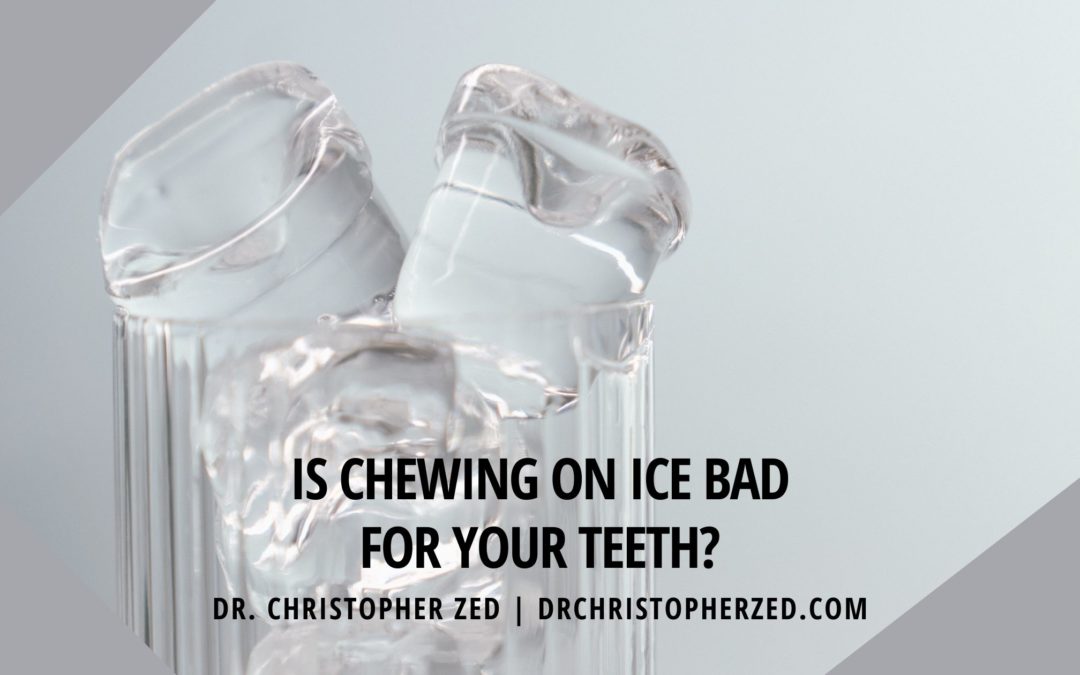People who chew ice are often told by their dentist to stop because it’s terrible for their teeth. Yet, in many places where the climate is cold and people aren’t accustomed to eating ice cubes, locals might not think twice about munching away on a nice cool ice cube in the summer. Is chewing on ice harmful? Depending on who one asks, the answer could be yes. Here’s what one needs to know about this controversial practice.
Chewing Ice Cubes
At its core, “when a person bites an ice cube, their teeth come together in a way that they would never do otherwise,” says Stefanie Williams, dentist, and owner of Sugar Fix Dental Boutique. This can result in chipped or teeth when hardened pieces shatter off. When the ice melts, it can create minor grooves that are even more susceptible to damage. This results in rough edges that get stuck between teeth or gums, which then causes bacteria to get caught there. “It would cause sensitivity because of exposing these areas to cold,” says Williams.
The American Dental Association (ADA) agrees with this assessment. In a statement, the ADA notes that chewing on ice cubes can be harmful if they chip or break teeth and expose the tooth’s sensitive interior. People who have braces, especially wire braces, are particularly susceptible to this risk because when an ice cube breaks off, it may stick into the wire bracket and nick or wear at the enamel layer.
“People who already have a lot of tooth wear or problems with cavities are also more susceptible to these issues,” says Williams. In this case, the ADA recommends that individuals cut their ice into small pieces and suck on them rather than chewing on them. This is especially important for people who grind their teeth at night without realizing it. “The cold temperatures may cause more grinding,” says Williams.
Other Ways of Looking At It
If a person doesn’t have any oral health concerns, sucking on an ice cube might be OK – not just in terms of preserving their teeth, but because it can be good for them. “There’s a school of thought out there where some dentists say that chewing on ice cubes helps stimulate saliva production,” she adds. Saliva is an integral part of oral health. It protects the teeth from bacteria and acids, which wear down the enamel.
If one really can’t kick the habit, at least consider switching to a tooth-friendly ice shape. “People who love to chew ice should use an ice cube tray or another type of mold where there are no sharp corners,” says Williams. This way, when the cubes melt, they’ll round out naturally and won’t be as likely to chip or damage their teeth.

